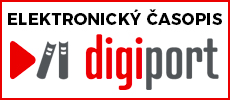Assessments are essential to the current system of education because they gauge comprehension by pupils, provide specific instruction, and guarantee academic success. Due to the increasing number of classes along with educational prerequisites, many students have started to rely on online coursework writing services in order to manage their educational duties efficiently. However, for academic achievement and personal development, it is crucial to comprehend the kinds of assessments that teachers employ.
There are many different types of educational assessments, each with unique goals, approaches, and results.
Formative Assessment
Continuous assessments that occur throughout the course of education are known as formative assessments. They are used to give instructors and learners suggestions, although they are not usually assessed. By identifying learning gaps, these tests enable teachers to modify their pedagogical approaches.
Among the examples are:
Tests
Talks in class
Submissions of drafts
Peer evaluations
Formative assessment's primary goal is to track pupil advancement and promote learning via interaction and input. It works really well to increase comprehension and encourage student participation.
Summative Assessment
Summative assessment is used to gauge students' understanding and are given at the conclusion of a unit of education. These assessments, which typically carry high stakes, have a big impact on final grades.
Among the examples are:
Final examinations
Final projects
standardized assessments
Research articles
To make sure their job is unique and complies with the institution's plagiarism regulations, students frequently look for Turnitin report-free choices because these tests have academic weight. Summative evaluations heavily weigh the integrity of academia, and reports on creativity give students the confidence they need to turn in their work.
Diagnostic Evaluation
Diagnostic tests are utilized to find out what students are familiar with and can-do prior instruction starts. These assessments assist teachers in determining students' prior knowledge and spotting any misunderstandings or difficulties early on.
Among the examples are:
Prior to tests
Checklists of skills
Surveys of learning styles
Benchmark Evaluation (or Temporary)
Throughout a course, benchmark exams are given at regular intervals to compare student performance to a predetermined benchmark or learning objective.
Among the examples are:
Tests every month or every three months
Exams in the middle of the semester
Take practice exams for standardized assessments.
Teachers can monitor student development and forecast future results with the use of these assessments.
Ipsative Evaluation
Ipsative assessment, which contrasts a student's current achievements with their prior work, is a less well-known but very useful method. This kind places more emphasis on individual development than peer comparison.
Among the examples are:
Evaluations of portfolios
Individual learning records
Reflections on self-evaluation
Finally, the foundation of the method of instruction is the assessment. The above-mentioned assessments have distinct functions in influencing and assessing learning. The students can improve their preparedness and approach their coursework more effectively by being aware of these different kinds. Additionally, reliable online coursework writing services can offer the direction you need to stay on course when things get too much to handle.



